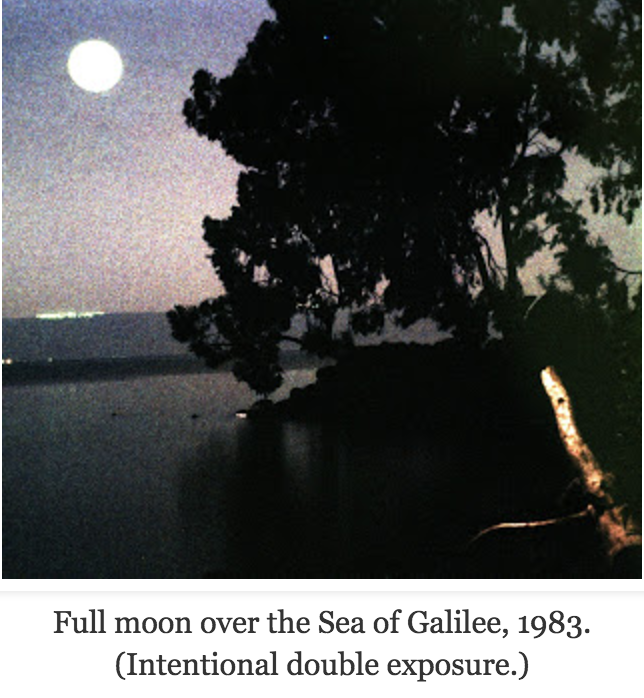“Peace! Be Still!”
The contemplative practices of those escaping “empire,” both politically and religiously…

How easily my calm was shattered as I started to write this post! My mouse stopped working, and I had to figure out once again how to open it, and then find a fresh battery. Still, it wouldn’t work, until Wade figured out to detach and reinsert its wireless receiver.
Then Jesus’ words came to me as balm for my exasperation as well as the title I was trying to come up with for this post on the Desert Mothers and Fathers: “Peace! Be still!”
Those of you who read last week’s post on memory know that I am reflecting on six themes of contemplative spirituality, and today’s focus is on the contemplative practices of those escaping “empire,” both politically and religiously, in the fourth and fifth centuries.
Ammas and abbas, the “mommies” and “daddies” of this movement, felt called to withdraw from the corrupting influences of society even as Christianity was embraced and entangled by “the powers that be.” They were true radicals, as in going back to the roots of a faith and practice that had earlier been marginalized, persecuted, and martyred.
Today’s Queer movement within the LGBT community is culturally reminiscent of those Christians who feared the faith would lose its cutting edge qualities through accommodation and assimilation.
When today we screw up our faces (and our psyches) trying to understand how so many Christians reconcile inhospitality, xenophobia, the death penalty, sexism, torture, economic inequality, and preemptive wars with the teachings of Jesus, we get a smidgeon of the distraught felt by those who went out into the deserts of Egypt, Palestine, Arabia, and Persia to pray, following the advice given to Arsenius: Flee, be silent, and rest (fuge, tace, quiesce).
Thomas Merton pointed out that “quiesce” is so much more than “contemplation”: “Quies is a simpler and less pretentious term, and much less misleading. It suits the simplicity of the Desert Fathers [and Mothers] much better than ‘contemplation’ and affords less occasion for spiritual narcissism and megalomania.”* Quies is Latin for quiet, and quiescere means “be still.” It was about letting go of all human pretensions of self-sufficiency and control, even our drama!
For Merton, crossing “the abyss that separates us from ourselves” would prevent human atrocities: “the great travelers and colonizers of the Renaissance were, for the most part, men who perhaps were capable of the things they did precisely because they were alienated from themselves. In subjugating primitive worlds they only imposed on them, with the force of cannons, their own confusion and their own alienation.”** I would think that today this could apply to globalization of economic or ideological interests.
And, of our own time, he wrote, “We can profitably reflect that modern mass-man is the one who has returned so wholeheartedly to fanatical projections of all one’s own evil upon ‘the enemy’ (whoever that may be). The solitaries of the desert were much wiser.”*** This could’ve been written yesterday!
So first, the contemplative way of life served as a prophylactic against visiting our toxins upon other people and other cultures.
It could be said that the early Christian monastics were first and foremost about removing the beam from their own eye so they were better able to help remove the splinter in another’s.
Merton compared civilization to a shipwreck, with contemplatives scrambling to shore, not solely for their own safety, but so that once on dry land they could extend a saving hand to others struggling to survive. This metaphor is particularly apt when we think of the many present-day refugees on overcrowded and rickety boats seeking sanctuary on distant shores, from the Mediterranean to the South Pacific.
So second, contemplation may serve as the first act of activism on behalf of others.
More than once I’ve used the story of Jesus and the disciples caught in a storm on the Sea of Galilee as a way of contrasting our usual prayers with contemplative prayer. Jesus, who regularly prays alone, sleeps soundly in the heart of the boat in the midst of a storm, while his disciples, frantic, call to him, “Don’t you care that we might lose our lives?” Awakened, with spiritual power, he tells the sea, “Peace! Be still!” And it was so. And the disciples are in awe.
Three qualities characterize the Desert Mothers and Fathers prayer of the heart: they are short and simple; they are repeated, thus unceasing, as in “pray always,” joining the rhythm of their lives; and they are inclusive of all concerns and, I would add, of all people, of all creation. When we pray “Thy kingdom come,” it is not just for the individual or a family or a nation or all human beings, it is for all of creation, for all of the cosmos.
As to brief prayers: “One phrase on the lips of the tax collector was enough to win God’s mercy; one humble request made with faith was enough to save the good thief,” Henri Nouwen wrote in The Way of the Heart: Desert Spirituality and Contemporary Ministry.+
Amma Syncletica compared the contemplative’s work to that of a homeowner:
For if someone who owns a ruined house receives guests there, harm is done
because of the dilapidation of the dwelling. It is the same in the case of someone
who has not first built an interior dwelling; loss is caused to those who come.++
*The Wisdom of the Desert, 20.
**Ibid, 12.
***Ibid, 22.
+The Way of the Heart, 81.
++The Forgotten Desert Mothers, 52.
Highly readable and helpful:
Thomas Merton, The Wisdom of the Desert and Contemplative Prayer.
Henri Nouwen, The Way of the Heart: Desert Spirituality and Contemporary Ministry.
Laura Swan, The Forgotten Desert Mothers: Sayings, Lives, and Stories of Early Christian Women.
Visit Chris Glaser’s Blog: Progressive Christian Reflections
